第23章
At the very time when the whole tide of Eastern superstition was sweeping into the heart of the Capital the Senate banished the Greek philosophers from Rome. And of the three systems which did at length take some root in the city, those of Zeno and Epicurus were used merely as the rule for the ordering of life, while the dogmatic scepticism of Carneades, by its very principles, annihilated the possibility of argument and encouraged a perfect indifference to research.
Nor were the Romans ever fortunate enough like the Greeks to have to face the incubus of any dogmatic system of legends and myths, the immoralities and absurdities of which might excite a revolutionary outbreak of sceptical criticism. For the Roman religion became as it were crystallised and isolated from progress at an early period of its evolution. Their gods remained mere abstractions of commonplace virtues or uninteresting personifications of the useful things of life. The old primitive creed was indeed always upheld as a state institution on account of the enormous facilities it offered for cheating in politics, but as a spiritual system of belief it was unanimously rejected at a very early period both by the common people and the educated classes, for the sensible reason that it was so extremely dull. The former took refuge in the mystic sensualities of the worship of Isis, the latter in the Stoical rules of life. The Romans classified their gods carefully in their order of precedence, analysed their genealogies in the laborious spirit of modern heraldry, fenced them round with a ritual as intricate as their law, but never quite cared enough about them to believe in them. So it was of no account with them when the philosophers announced that Minerva was merely memory. She had never been much else. Nor did they protest when Lucretius dared to say of Ceres and of Liber that they were only the corn of the field and the fruit of the vine. For they had never mourned for the daughter of Demeter in the asphodel meadows of Sicily, nor traversed the glades of Cithaeron with fawn-skin and with spear.
This brief sketch of the condition of Roman thought will serve to prepare us for the almost total want of scientific historical criticism which we shall discern in their literature, and has, besides, afforded fresh corroboration of the conditions essential to the rise of this spirit, and of the modes of thought which it reflects and in which it is always to be found. Roman historical composition had its origin in the pontifical college of ecclesiastical lawyers, and preserved to its close the uncritical spirit which characterised its fountain-head. It possessed from the outset a most voluminous collection of the materials of history, which, however, produced merely antiquarians, not historians. It is so hard to use facts, so easy to accumulate them.
Wearied of the dull monotony of the pontifical annals, which dwelt on little else but the rise and fall in provisions and the eclipses of the sun, Cato wrote out a history with his own hand for the instruction of his child, to which he gave the name of Origines, and before his time some aristocratic families had written histories in Greek much in the same spirit in which the Germans of the eighteenth century used French as the literary language. But the first regular Roman historian is Sallust. Between the extravagant eulogies passed on this author by the French (such as De Closset), and Dr. Mommsen's view of him as merely a political pamphleteer, it is perhaps difficult to reach the VIA MEDIA of unbiassed appreciation. He has, at any rate, the credit of being a purely rationalistic historian, perhaps the only one in Roman literature. Cicero had a good many qualifications for a scientific historian, and (as he usually did) thought very highly of his own powers. On passages of ancient legend, however, he is rather unsatisfactory, for while he is too sensible to believe them he is too patriotic to reject them. And this is really the attitude of Livy, who claims for early Roman legend a certain uncritical homage from the rest of the subject world. His view in his history is that it is not worth while to examine the truth of these stories.